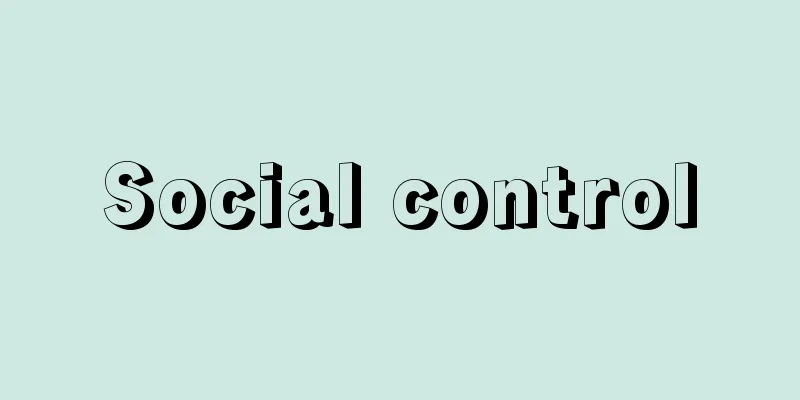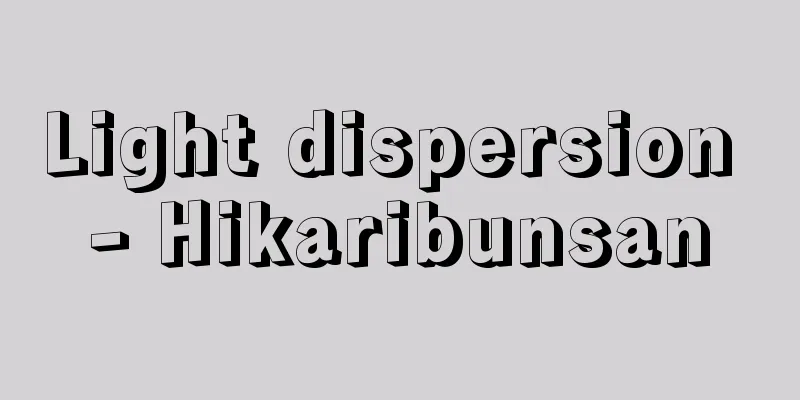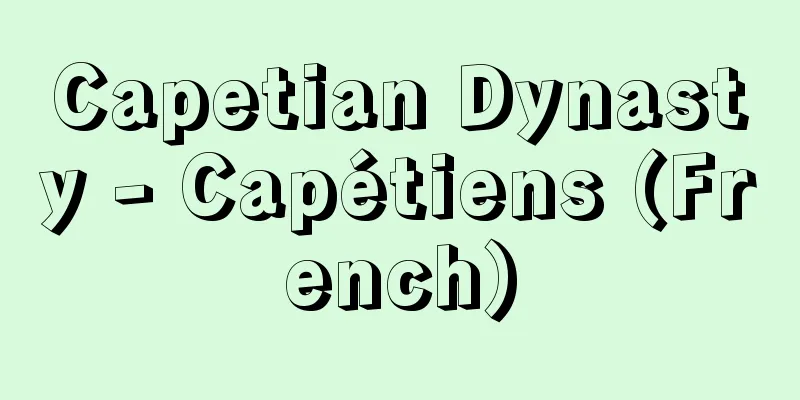Social control

|
It refers to the totality of all the measures and processes that a society or a group within it takes to secure the conformity or obedience of its members. It was first used in American sociology and has since become a widely used concept in the general public. In any society or group, in order to maintain order, each member must behave in a way that is appropriate to the role expected of him or her. To this end, the society or group punishes behavior that violates expectations to prevent recurrence, and rewards behavior that meets expectations to further encourage it. Generally, we tend to think only of the aspect of social control in which "negative sanctions" such as prohibition, punishment, and criticism are exercised (negative social control), but in social science, the term social control usually includes incentives using "positive sanctions" such as orders, rewards, and commendations (positive social control). Therefore, the scope is extremely broad, and the specific forms of control vary depending on the control means and control institutions. They include punishment that relies on physical force, persuasion or education that appeals to more psychological means, and propaganda. In addition, there are planned and specific forms of control carried out by officially institutionalized institutions, such as legal control and economic control, as well as more spontaneous and diffuse forms of control carried out by informal small groups, public opinion, or customs. Historically, the old form of control, in which the controllable and the controlled were clearly distinguished, has become unclear, and has changed into a new form that is better called mutual surveillance. It can be said that the modern era is characterized by the fact that the status of the controllable and the controlled is not as clearly separated as it was in the past. Parents at home, teachers at school, and judicial and police officers in the state are not absolute control agents. Rather, they are controlled and monitored by children, students, and the general public. D. Riesman describes this state in which each reflects, controls, and monitors the other as "every member is both a juror and a defendant." Control based on arbitrary use of violence, or communal regulation dependent on strong customs, are both now weakening in power. However, this does not necessarily mean that the control ability of society as a whole has decreased. First of all, the expansion of welfare systems has made it possible to manipulate through rewards rather than oppression through punishment. It is much more efficient to encourage self-regulation based on the members' voluntary initiative than to enforce it by force. Next, the amazing progress of information science has increased the ability of every society and group to manage people. Although it is by no means spectacular, it is becoming possible to manage people in a much more detailed way, such as by imposing a national identification number system. M. Foucault states that everyone is being forced to become "visible." Finally, the anonymous authority of public opinion has taken over the place of the former communal regulations, and as already mentioned, two-way mutual surveillance rather than one-sided control can become widespread. In general, while authoritarian control backed by violence could only secure the outward obedience of its members, modern control has succeeded in grasping and managing people from within by manipulating psychological incentives, such as persuasion, propaganda, and education. [Hideaki Ohmura] "E. Durkheim, translated by Tahara Otowa, "Modern Sociology Series 2: The Division of Social Labor" (1971, Aoki Shoten) " "M. Foucault, translated by Tamura Hajime, "The Birth of the Prison: Surveillance and Punishment" (1977, Shinchosha)" [Reference items] | |Source: Shogakukan Encyclopedia Nipponica About Encyclopedia Nipponica Information | Legend |
|
社会やその内部の集団が、構成メンバーの同調ないし服従を確保するためにとるあらゆる手段および作用過程の全体をさす。初めアメリカ社会学で用いられ、その後広く一般にも定着した概念。 どんな社会あるいはどんな集団をとってみても、秩序が維持されるためには、各成員がおのおの自分に期待されている役割にふさわしく行動する必要がある。そのため、社会ないし集団は、期待に背いた行動は処罰して再発を防止し、期待にかなった行動は報賞してこれをさらに促すのである。一般には、禁止、処罰、非難といった「負の制裁」が行使される側面(消極的社会統制)だけを考えがちであるが、社会科学では、命令、報賞、表彰など「正の制裁」を用いた奨励策(積極的社会統制)も含めて社会統制とよぶのが普通である。したがって、その範囲はきわめて広く、具体的な統制のあり方も、統制手段や統制機関の違いによってさまざまである。物理的な強制力に依存する刑罰から、より心理的な手段に訴える説得ないし教育、それに宣伝までが含まれる。また、法的統制や経済統制のように、公的に制度化された機関が行う計画的で特定化されたものもあれば、非公式な小集団や世論ないし慣習が担当するもっと自然発生的で拡散的な統制形態もある。 歴史的にみれば、統制する側とされる側が厳然と区別されているような古い統制形態から、この区別が不明瞭(ふめいりょう)になり、むしろ相互監視とよんだほうがいいような新しい形態に変化してきた。統制する身分と、される身分とが昔のようにはっきり分かれていないのが現代の特徴だといってもいい。家庭の両親、学校の教師、それに国家における司法官や警察官、いずれをとっても絶対的な統制主体(エージェント)ではない。むしろ、子供や生徒、それに一般国民によってそれぞれ統制され監視されている人たちでもある。互いが互いを映しあい、統制しあい、そして監視しあっているようなこの状態を、D・リースマンは「成員のだれもが陪審員であるとともに被告でもある」と表現している。恣意(しい)的な暴力行使を背景にした統制、あるいは強固な慣習に依存した共同体的規制、いずれもいまでは力を弱めている。しかし、そのことで全体社会の統制能力が落ちているかといえば、かならずしもそうとはいえない。まず福祉制度の拡充によって、罰による抑圧より、賞による操作が可能になっている。力による強制より、成員の自発性に基づくいわば自主規制を促すほうがはるかに能率的である。ついで、情報科学の驚異的進歩によって、どの社会どの集団も人間管理能力を高めている。けっして華々しくはないが、そのかわり、はるかに微に入り細にわたった管理が、国民総背番号制といった形で可能になろうとしている。M・フーコーは、だれもが「可視性」を押し付けられようとしているのだと述べている。 最後に、世論という匿名の権威がかつての共同体的規制を肩代りし、すでに述べたように、一方的統制というよりむしろ双方的な相互監視を広く行き渡らせることができる。総じて、暴力を背景にした権威主義的な統制が、成員の外面的服従をしか確保できなかったのに対して、現代の統制は、説得、宣伝、教育など、心理的な誘因操作によって人々をその内面から把握し、管理することに成功している。 [大村英昭] 『E・デュルケーム著、田原音和訳『現代社会学大系2 社会分業論』(1971・青木書店)』▽『M・フーコー著、田村俶訳『監獄の誕生――監視と処罰』(1977・新潮社)』 [参照項目] | |出典 小学館 日本大百科全書(ニッポニカ)日本大百科全書(ニッポニカ)について 情報 | 凡例 |
Recommend
Classical Latin (English spelling) Classical Latin
...However, since C sharing both k and g was inco...
Parboiled rice (English)
…Recently, a new type of enriched rice has been r...
Jaggayyapeta
...It is widely believed that artistic activity i...
Buoyancy
The force that acts on a material when the materi...
Stratas, T. (English spelling) StratasT
...However, the opera was left unfinished in the ...
Caterpillar - Caterpillar
〘Noun〙① A common name for butterfly and moth larva...
Pavel Sergeevich Aleksandrov
One of the leading mathematicians in the former S...
Stock Value - Kabushikikachi
…The value of a stock is essentially the overall ...
Calligraphy meeting (English spelling) shū huì
During the Song and Yuan dynasties in China, with ...
śulka (English spelling) sulka
…However, even if the wife was at fault, it was v...
Vienna Monetary Union
...However, reconciling the conflicting interests...
Otolaryngology - Otorhinolaryngology
A branch of clinical medicine. In the West, ear d...
Saigokusujigundai - Saigokusujigundai
During the Edo period, this was a position that g...
Toynbee, Arnold Joseph
Born: April 14, 1889, London [Died] October 22, 19...
vuelta
…Originally developed among the gypsies who settl...









